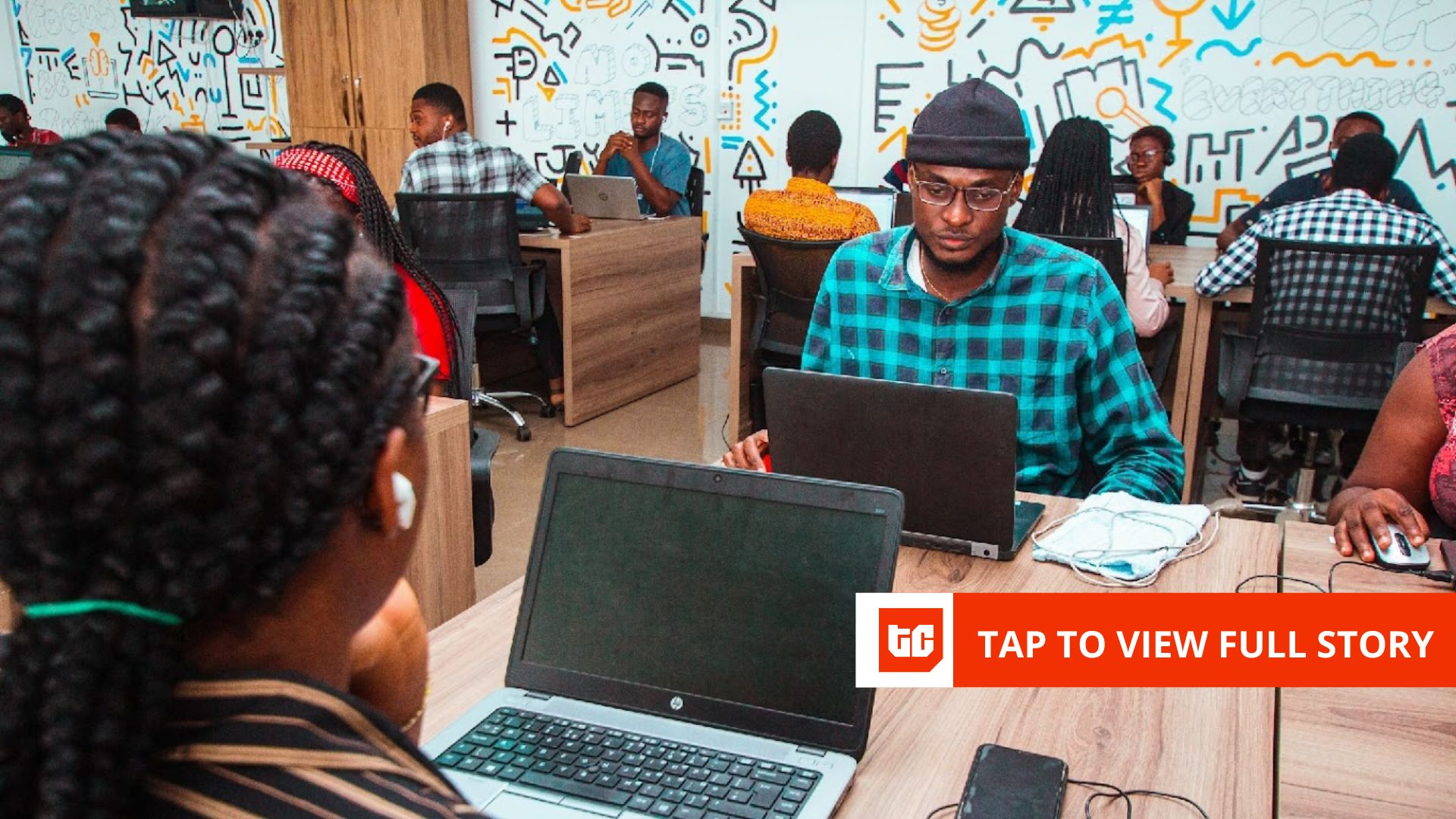Place your adverts here on InfoDig @ low rates; banner ads, sponsored links and guest articles etc. Contact us
Oluwadunsin Adeyemi, a Linguistics and Languages student from Adekunle Ajasin University, through dint of hardwork, emerged a first-class graduate with a 4.66 GPA. Speaking with TEMITOPE ADETUNJI, the 26-year-old delves into factors that propelled her to the top, recounting the hurdles she overcame and how her unwavering passion for linguistics set her on the path to extraordinary success
You graduated with an impressive first-class degree in Linguistics and Languages. What were the key factors that motivated you to achieve such an outstanding academic success?
From the first day I got into school, my main motivation was the passion I had for the course. I genuinely loved it and was eager to learn. That was my primary drive. I first learned about linguistics from a youth corps member during my secondary school days. He taught us English phonetics, and I became fascinated by the course. That was when I realised people studied linguistics as a course. This became part of my motivation to pursue it. Initially, I wanted to study law but developed a love for linguistics instead.
Additionally, the people around me, including my friends and senior colleagues, helped a lot. They motivated, advised and guided me. Many students complained about the course, saying the language or its usage was difficult, or that they weren’t interested in it because JAMB had assigned them the course. But I felt that it shouldn’t be so difficult.
Another motivation for me was actually the negative attitude people had towards the course. I simply believed it wasn’t as hard as they made it seem. I wanted to prove that. I kept telling myself, “I’m going to work hard and show people that it’s not as challenging as they think.”
As time went on, I kept learning more about the course, and my passion for it grew. I was also encouraged by a senior colleague who graduated with a first-class degree. He kept pushing me to stay focused and not pay attention to negative comments or reactions from others. He reminded me to keep moving forward.
As a female student, some people questioned why I was so serious about my studies, but that only motivated me further. My parents were also a great source of motivation. Even before I finished secondary school, they kept encouraging me to do my best. They didn’t want me to limit myself just because I was the youngest in the family. They believed I could achieve more, and I wanted to make them proud.
Also, since I was given the course I wanted to study, I kept pushing and didn’t give up.
You mentioned that the negative attitude of people was a source of motivation. Can you elaborate on this?
Yes. I remember that whilst seeking admission, a woman in my church discouraged me.
When I told her that I chose linguistics as a course of preference at the university, she said it was a very difficult course and advised me to choose something else. She spoke from the place of her experience because she told me that while pursuing a higher degree in a related field, she found it challenging. But I loved challenges, so I wasn’t deterred. I wanted to show that it wasn’t as hard as people thought. It is a common misconception that linguistics is a very difficult course.
Could you share some of the biggest challenges you faced during your time at Adekunle Ajasin University, and how you overcame them?
One of the biggest challenges I faced was during my final year when I had to write my thesis. I didn’t have a laptop at the time, and I had to do everything myself, which made it very difficult. Fortunately, I had a friend who helped me a lot. He allowed me to use his laptop and guided me through the process. Most times, I had to stay up overnight to get the work done, but with his help, I managed to overcome that challenge.
I worked through the night during my project. Normally, I’m not the type of person who stays up late. I don’t read at night or attend night classes. I usually prefer to wake up early, around six in the morning, to study. But during that period, I had to because I needed to return the system I was using before the deadline. It took a toll on me, but I knew I had to push through because the project was essential for me to achieve my first-class goal. That was the biggest challenge I faced at that time.
In my first year, I was doing well. The only time I had a setback was when I got a ‘C’ in a course during my second semester in my second year. That was my first ‘C,’ and it was unexpected because I thought I had performed well. I ended up with a 50, and I was shocked. I approached the lecturer to review my score, but it didn’t change. It was frustrating, and I cried because I thought it would jeopardise my first-class goal.
One of my lecturers, now a doctor, told me not to worry about it. He had also graduated with first-class honours and had received a ‘C’ at some point. He reminded me that it’s not the end of the world and encouraged me to focus on my project and keep doing my best. That advice stuck with me.
So, when did your grades pick up after that discouraging grade?
If I were to advise anyone, I would tell them to put in their best effort from the start, especially in their first and second years. In my first year, I had a GPA of around 4.9, so even when I got that ‘C’ in my second year, my overall GPA remained strong, around 4.7. I stayed focused and kept working hard.
In my third year, things became more challenging, and my GPA dropped below 4.7, but my project and final-year results helped lift it back up. The third year was the most difficult, with multiple ‘C’s.
How did you feel during that challenging period?
To be honest, during my third year, I felt really tired. I was ready to settle for whatever grade I could get at that point. Some of my friends, who were also aiming for first-class honours, started giving up, and I almost did the same. But I kept reminding myself that I wanted that first-class degree. The strike action and disruptions caused by COVID-19 also made things harder.
When I got into university in 2017, my goal was to get a first-class degree from the start. I did a pre-degree programme in 2016, before gaining admission, and I was motivated by the support from my parents, especially my dad, who encouraged me to aim for first-class. Even though I doubted myself at times, I held on to that goal.
Who are your role models, both academically and personally, and how have they influenced the person you’ve become today?
I have two academic role models – Dr Ibikunle and Mr Oluseyi Emmanuel, both of whom are my lecturers. Personally, my role model is my dad.
Why your dad?
I see him as a knowledgeable person who has been a rock for me. He has always pushed me to go far and be a better person. For example, when I was preparing for my WAEC, he encouraged me by saying I could pass, even though my siblings didn’t succeed on their first try. Being the last child in the family, his belief in me meant a lot. He encouraged me to aim for a first-class degree, and I worked towards it and made it a reality.
How do you feel about being the first child to bag a first-class in your family?
I’m so happy and proud of myself. My family is proud of me too.
You mentioned that some lecturers impacted your academic journey. Can you speak a bit more on this?
Dr Ibikunle was very supportive. During my 100, when I was taking a phonetics course, which he taught, many students struggled. However, only three of us did well, and he recognised our efforts. He even gave us a small reward, which motivated me a lot. Since then, he continued to guide me, offering personal coaching even when I had issues with my project. Although he wasn’t my official supervisor, my actual supervisor handed me over to him, and he practically oversaw my work.
Mr Oluseyi Emmanuel, on his part, also played a major role. I had an issue with my course registration in my 400-level that could have affected my GPA badly. He not only helped rectify the problem but also paid for the necessary corrections when I couldn’t afford it. He’s been a strong supporter, always offering guidance, and I’m grateful for that.
You mentioned the role your dad played in your success, what about your mum?
My mum was supportive as well, but she got sick when I was in my second year. She had surgery for a brain tumour, which affected her speech and comprehension. It was a challenging time for me because I had to stay with her during the break, and this impacted me emotionally. However, this experience became another motivation for me to succeed.
How did you manage to keep going despite the emotional strain?
I had good friends who encouraged me. My dad and siblings were also my major strength. Despite everything, my dad remained strong, which inspired me to push through. His support, and that of my siblings, helped me stay focused.
Were you in a relationship while in school, and if yes, how did you stay focused?
Yes, I was in a relationship and still am. Staying focused depends on your partner. As I mentioned earlier, I’ve been fortunate to have good people around me, and one of those people who played a significant role in my success is my partner. Our relationship wasn’t just about being together; he truly understood my goals.
He knew exactly what I was aiming for. For example, during my second year in the university, when I started feeling a bit discouraged, he was there, encouraging me. He kept reminding me that we have a goal, which is to graduate with first-class honours. He kept telling me that I can do it. He supported and motivated me through it all.
What do you do currently?
I am serving in Akwa Ibom. I graduated from school last year.
How has the NYSC experience shaped your perspective?
It has really helped me, especially with the course I studied and my objectives. I find it very interesting to mix with people from different tribes and languages. Here in Akwa Ibom, they speak Ibibio, Anaang, and Efik, and I’m even learning from them. It’s like I’m experiencing in reality what I learned in school. I have a strong interest in languages, so it’s mostly about the language for me. I’m always asking questions and linking what I learn to what I studied in school. It’s like the theoretical knowledge is now coming to life.
After completing your youth service, what are your plans or specific career goals?
My mum’s health issues gave me a new sense of motivation. When I learned about psycholinguistics during my studies, I became more interested in the intersection between language and the brain. It was during this course that I could relate to what my mum was going through with her health issues. She has a brain tumour, and this happened when I was still in school, I think around my third year. It affected me a lot, and I ended up getting multiple C’s. It was a tough struggle for me. Dealing with the mental and emotional stress wasn’t easy.
Although we only touched on the basics, it sparked my interest in exploring the psychological aspects of language further. So, my current goal is to dive deeper into psycholinguistics, especially the medical side of it. Unfortunately, here in Nigeria, we don’t have any school that offers this course at the master’s level. There isn’t even a single school in Nigeria that teaches it. I’m currently working on getting a scholarship to study this course abroad. My lecturer told me that there are schools abroad where I can study this course because it’s not offered here in Nigeria. It’s unfortunate, but that’s the situation. Even back in school, the lecturers struggled with teaching that particular course because it wasn’t well-supported. Despite the challenges, I developed an interest in it, especially in areas like speech therapy. So, that’s what I’m working on now.
What advice would you give to students currently studying or about to start their university journey, especially those aiming for academic excellence?
My advice is to set your priorities straight. If you’re aiming for academic excellence, be sure that’s your goal and stay focused. Don’t get distracted because a lot of people will try to distract or discourage you.
Determination is key and don’t pay attention to negative voices around you. You should also believe in yourself. Life can be discouraging at times, like my mum’s situation, but it’s all about determination. Figure out what works for you. Back in school, some people were going for night classes, but they weren’t really studying effectively. So, know what study methods work for you, how you can best understand what you’re learning, and stick with that.
What are you most grateful to God for?
I’m grateful to God for everything, for helping me achieve what I have now. I graduated with a 4.66 GPA. Without God, none of this would have been possible. It was much easier than I expected, and that’s all thanks to God. I’m thankful for everything, including keeping my parents alive.















 English (US) ·
English (US) ·